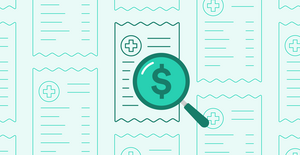Book urgent care & walk-in clinics near me in Nashville, TN
Own a clinic? Add your location.
Help patients book appointments with you on Solv. It's free!
21 instant-book locations

American Family Care, Nashville South
American Family Care
Today
View more
Ascension Saint Thomas Urgent Care, Nashville
Ascension Saint Thomas Urgent Care
Tomorrow
View more
Privia Virtual Clinic, Tennessee
Privia Virtual Clinic

Ascension Saint Thomas Urgent Care, Donelson
Ascension Saint Thomas Urgent Care
Today
View more
Ascension Saint Thomas Urgent Care, Madison
Ascension Saint Thomas Urgent Care
Today
View more
Ascension Saint Thomas Urgent Care, Hermitage
Ascension Saint Thomas Urgent Care
Today
View more
American Family Care, Providence
American Family Care
Today
View more
American Family Care, Indian Lake
American Family Care
Today
View more
Ascension Saint Thomas Urgent Care, Mt. Juliet
Ascension Saint Thomas Urgent Care
Today
View more
Ascension Saint Thomas Urgent Care, Franklin
Ascension Saint Thomas Urgent Care
Today
View more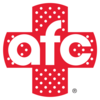
American Family Care, Smyrna
American Family Care
Today
View more
Ascension Saint Thomas Urgent Care, Gallatin
Ascension Saint Thomas Urgent Care
Today
View more
Ascension Saint Thomas Urgent Care, Springfield
Ascension Saint Thomas Urgent Care
Today
View more
Moore Life Urgent Care
Moore Life Urgent Care
Today
View more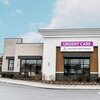
Ascension Saint Thomas Urgent Care, Murfreesboro (West)
Ascension Saint Thomas Urgent Care
Today
View more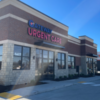
Gateway Urgent Care TN, Franklin Rd
Gateway Urgent Care TN
Today
View more
American Family Care, Spring Hill
American Family Care
Today
View more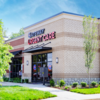
Gateway Urgent Care TN, Memorial
Gateway Urgent Care TN
Today
View more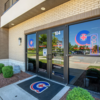
Gateway Urgent Care TN, Medical Center
Gateway Urgent Care TN
Today
View more
Ascension Saint Thomas Urgent Care, Murfreesboro
Ascension Saint Thomas Urgent Care
Today
View more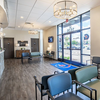
Gateway Urgent Care TN, New Salem
Gateway Urgent Care TN
Today
View moreOwn a clinic? Add your location.
Help patients book appointments with you on Solv. It's free!
Getting to Know the Nashville Area
Nashville, the vibrant heart of Tennessee, is not only known for its rich musical heritage but also for its diverse neighborhoods, each with its own unique charm and character. When life throws an unexpected curveball, knowing where to find urgent care can be just as important as enjoying a night out on Broadway. Here’s a guide to the most popular urgent care locations throughout Nashville, cleverly situated near some of the city’s most iconic landmarks and neighborhoods.
Green Hills is a fashionable area known for its upscale shopping and dining, bordered by Hillsboro Pike to the east and Harding Pike to the south. One of the top urgent care facilities here is the Green Hills Urgent Care, conveniently located near the intersection of Woodmont Boulevard and Granny White Pike. After your visit, you can treat yourself to a stroll through the nearby Green Hills Mall or grab a bite at one of the many chic eateries that line the streets.
Moving east, East Nashville is a vibrant neighborhood that boasts a creative spirit. The East Nashville Urgent Care is ideally situated off Gallatin Pike and just a short drive from the scenic Shelby Bottoms Park. This area is known for its eclectic shops, trendy restaurants, and a strong sense of community. After your appointment, consider exploring the local art scene or enjoying a meal at one of the neighborhood's beloved cafes.
In the affluent Belle Meade area, you’ll find the Belle Meade Urgent Care nestled near the intersection of Harding Pike and Davidson Road. Surrounded by the lush greenery of Percy Warner Park, this location offers a serene environment for those needing medical attention. Afterward, take a moment to appreciate the historic architecture that defines this upscale neighborhood.
Sylvan Park, characterized by its charming bungalows and friendly atmosphere, is home to the Sylvan Park Urgent Care located near Charlotte Avenue and I-440. This area is perfect for a leisurely post-visit stroll through Richland Park or a delicious meal at one of the local eateries that celebrate Nashville’s culinary scene.
In the lively 12 South district, the Green Hills Urgent Care can be found along Belmont Boulevard, just a short walk from the popular “Wings Mural” and the bustling shops on 8th Avenue. This neighborhood is perfect for a post-visit coffee or a stroll through the picturesque streets lined with unique boutiques and eateries.
Donelson, known for its family-friendly atmosphere, is home to the Vanderbilt Walk-In Clinic, located near Lebanon Pike and Briley Parkway. This area is close to the beautiful Percy Priest Lake, offering a perfect opportunity to unwind with nature after your visit.
For those in the Brentwood area, the Ascension Saint Thomas Urgent Care Urgent Care is situated near the intersection of Old Hickory Boulevard and Concord Road, making it easily accessible. This suburban community is known for its parks and family-friendly activities, offering a serene backdrop for relaxation after your appointment.
Nashville’s neighborhoods not only offer a rich tapestry of culture and community but also ensure that quality urgent care is never far away. Whether you’re exploring the lively streets of East Nashville or the upscale charm of Belle Meade, you can rest assured that help is nearby when you need it most.
How Much Does Urgent Care Cost In Nashville?
The cost of urgent care in Nashville can vary widely based on several factors, including the facility, the nature of the medical issue, and whether you have insurance. For insured patients, copays typically differ among plans, while those without insurance may face additional charges for services like lab tests or X-rays. It's recommended to inquire directly with urgent care centers and your insurance provider for detailed information on pricing and coverage before your visit.
What is the cost of an urgent care visit in Nashville without insurance?
The cost of an urgent care visit in Nashville without insurance can also vary significantly depending on the facility and the services provided. Generally, patients can expect to pay a flat fee for the visit, with additional charges for any necessary tests, treatments, or procedures. It's common for total expenses to range from a moderate to higher amount, depending on the complexity of the medical issue. To get an accurate estimate, it's best to contact the specific urgent care center beforehand.
What Conditions are Treated in Nashville?
In Nashville, urgent care centers provide a wide range of services to address various medical conditions, ensuring prompt treatment for non-life-threatening issues. Commonly treated conditions include:
-
Minor Injuries: Sprains, strains, fractures, and cuts.
-
Respiratory Issues: Cough, cold, flu, bronchitis, and asthma exacerbations.
-
Infections: Urinary tract infections (UTIs), ear infections, and skin infections.
-
Gastrointestinal Problems: Nausea, vomiting, diarrhea, and abdominal pain.
-
Allergic Reactions: Mild to moderate allergic reactions and skin rashes.
-
Headaches and Migraines: Treatment for acute headaches and migraines.
-
Dermatological Issues: Rashes, insect bites, and minor burns.
-
Sports Injuries: Treatment for injuries sustained during athletic activities.
-
X-Ray Services: On-site X-rays to diagnose fractures and other conditions.
-
Vaccinations: Immunizations for flu, tetanus, and other preventable diseases.
-
Physical Exams: School and sports physicals.
-
Chronic Condition Management: Follow-up care for conditions like diabetes and hypertension.
These services make urgent care centers in Nashville a convenient option for individuals seeking immediate medical attention for a variety of conditions without the long wait times often associated with emergency rooms.
Nashville Urgent Care FAQs
Where can I find the best urgent care center in Nashville?
The best urgent care centers in Nashville can be found through online reviews, local recommendations, and healthcare provider directories.
What are the typical wait times at Nashville urgent care centers?
Typical wait times at Nashville urgent care centers range from 15 minutes to over an hour, depending on the time of day and patient volume.
Which urgent care centers in Nashville are open 24/7?
While there are several medical centers and hospitals that offer urgent care around the clock, there are no walk-in clinics that operate 24/7.
Do urgent care centers in Nashville accept walk-ins, or do I need an appointment?
Most urgent care centers in Nashville accept walk-ins, though some may allow or recommend appointments to minimize wait times.
Can I get a COVID-19 test at an urgent care center in Nashville?
Yes, many urgent care centers in Nashville offer COVID-19 testing, including rapid tests and PCR tests.
What other services do Nashville urgent care centers provide beyond basic medical care?
Beyond basic medical care, Nashville urgent care centers may provide services such as X-rays, vaccinations, physical exams, and lab tests.
Are there pediatric urgent care centers in Nashville?
Yes, there are pediatric urgent care centers in Nashville specifically designed to cater to the medical needs of children, including Vanderbilt Children’s Urgent Care.
How do I choose between an emergency room and urgent care in Nashville?
Choose an emergency room for life-threatening conditions or severe injuries, and opt for urgent care for non-life-threatening issues that require prompt attention.
What are the most highly rated urgent care centers in Nashville?
Some of the most highly rated urgent care centers in Nashville include The Urgent Care Center, Green Hills Urgent Care, and East Nashville Urgent Care, known for their quality service and patient care.
Top 7 Local FAQs About Nashville Healthcare
Why do urgent care centers close at 8 pm?
Urgent care centers typically close at 8 pm to ensure staff availability and manage patient flow during peak hours, allowing for adequate care.
Can an urgent care provider in Nashville treat more serious conditions?
Urgent care providers can treat many non-life-threatening conditions but may refer patients with more serious issues to emergency rooms.
What do urgent care centers treat?
Urgent care centers treat a variety of conditions, including minor injuries, infections, respiratory issues, and other non-life-threatening medical problems.
Low-cost healthcare with no insurance?
Many urgent care centers offer low-cost services for uninsured patients, often providing transparent pricing and payment options.
What is healthcare for low-income people in TN?
In Tennessee, low-income individuals may access healthcare through programs like TennCare, which provides Medicaid services, and community health clinics.
Which Nashville urgent care centers offer COVID-19 testing?
Many urgent care centers in Nashville, including Nashville Urgent Care and East Nashville Urgent Care, offer COVID-19 testing options.
Do Portland or Nashville have better hospitals?
Both Portland and Nashville have reputable hospitals, but the quality can vary by specialty; it's best to research specific hospitals for individual needs.
Common Health Insurance Companies in TN
When it comes to health insurance in Tennessee, residents have access to a variety of providers offering diverse plans to meet their healthcare needs. Here’s a list of some of the most common health insurance companies operating in the state:
1. UnitedHealthcare
2. Anthem Blue Cross Blue Shield
3. Aetna
4. Cigna
5. Oscar Health
6. EmblemHealth
7. Fidelis Care
8. HealthFirst
9. Empire BlueCross BlueShield
10. BlueCare Tennessee (a subsidiary of Blue Cross Blue Shield)
These providers offer a range of options, including individual, family, and employer-sponsored health insurance plans, ensuring that Tennesseans can find coverage that suits their needs.
Nashville Healthcare News in 2024
-
Community Health Systems subsidiary to buy 10 urgent care centers
Modern Healthcare (September 17, 2024) -
Ascension Saint Thomas Urgent Care Opening Third Murfreesboro Location this Month
WGNS News, Murfreesboro (Feb 19, 2024) -
Nashville General opens Bordeaux outpost
Nashville Post (Feb 15, 2024)
Solv has strict sourcing guidelines and relies on peer-reviewed studies, academic research institutions, and medical associations. We avoid using tertiary references.
Related Searches
Urinalysis in Nashville, TN
Pregnancy Test in Nashville, TN
Allergy Testing in Nashville, TN
Lab Tests in Nashville, TN
COVID-19 Pill in Nashville, TN
Blood Test in Nashville, TN
Cholesterol Test in Nashville, TN
A1C Test in Nashville, TN
Thyroid Test in Nashville, TN
CMP Test in Nashville, TN
Glucose Test in Nashville, TN
Hepatitis test in Nashville, TN
Diagnostic Test in Nashville, TN
Diabetes Test in Nashville, TN
Drug Test in Nashville, TN
STD Testing in Nashville, TN
Strep Test in Nashville, TN
Pediatric Urgent Care in Nashville, TN
Pulmonary Function Test in Nashville, TN
Dermatologists in Nashville, TN
Sports Physicals in Nashville, TN
Mono Test in Nashville, TN
H Pylori Test in Nashville, TN
DOT Exam in Nashville, TN
Retail Clinic in Nashville, TN
TB Test in Nashville, TN
Flu Test in Nashville, TN
RSV Test in Nashville, TN
Ear Wax Removal in Nashville, TN
Vitamin D Test in Nashville, TN
COVID-19 Testing in Nashville, TN
Basic Metabolic Panel in Nashville, TN
DNA Test in Nashville, TN
Aetna Urgent Care
Blue Cross Blue Shield Urgent Care
Cigna Urgent Care
COVID-19
Flu
United Health Urgent Care
» All services in Nashville, TNFind urgent care
Nearby cities
Everyday Healthcare, Simplified
Expert advice to help you live your best life





